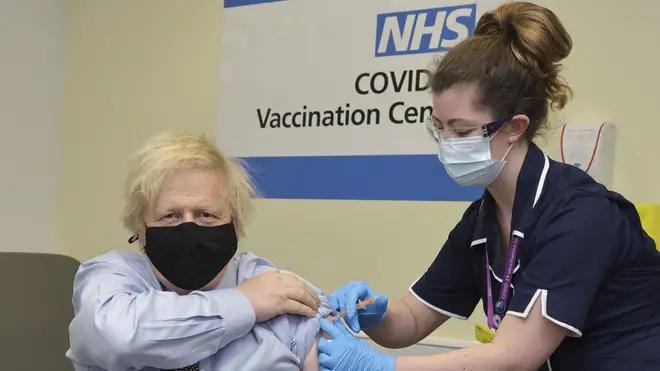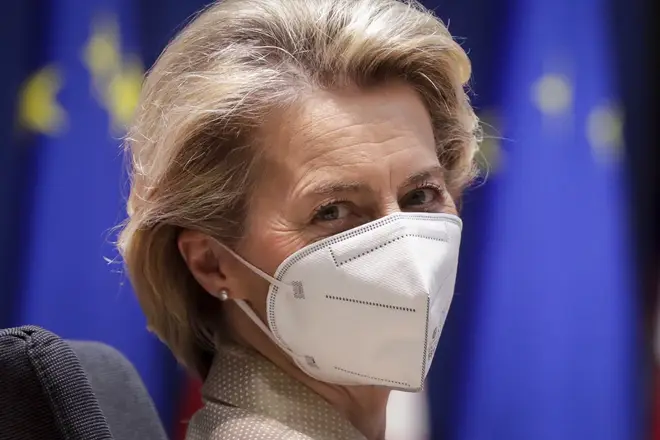
Ian Payne 4am - 7am
22 March 2021, 14:04 | Updated: 22 March 2021, 17:35

Overnight, we got yet more proof, as if it were really needed, that the Oxford/AstraZeneca vaccine is not only safe, but also highly effective against COVID-19.
Long-awaited results from clinical trials in the United States have shown that the vaccine is 79% effective at preventing symptomatic disease, and 100% effective at stopping serious illness and hospitalisation.
Also important to note in the current context is that the trial found no safety issues regarding blood clots. More on that later.
The US trial has a few key advantages over the separate trial results already published back in November. It was significantly larger, involving nearly three times as many people, and crucially nearly a fifth of participants were over the age of 65.
The data shows they got just the same protection as younger volunteers. Initially, Oxford scientists chose not to test the vaccine widely amongst the over-65s until they had plenty of evidence that it was safe and effective in younger people.
Read more: Trust in Oxford-AstraZeneca vaccine safety plunges in Europe amid blood clot scare
A reasonable decision at the time, perhaps, but it meant that the first set of clinical trial data only had limited information about the vaccine’s effects in over 65s.
It was that lack of information that led to several European countries advising against its use in older people.
French President Emmanuel Macron went further, and without presenting any evidence, claimed the jab was “quasi-ineffective on people older than 65, some say those 60 years or older.”
As many scientists pointed out at the time, lack of data does not mean lack of effectiveness.
The US trial results should firmly put that debate to bed. The initial clinical trial findings were also muddied by a dosing error that raised questions about the vaccine’s effectiveness.

One smaller group of volunteers were given a half dose by mistake, which turned out to be more effective than the main group.
An average of the two results was taken in the final reporting of results, but that raised a few eyebrows.
The US trial has a much clearer, uniform dosing schedule which allows us to arrive at a more confident assessment of the vaccine’s effectiveness. And it is high.
All of this will go a long way to reassuring national regulators, and will pave the way for the vaccine to be approved in America in the coming weeks. However, reassuring the public is another matter.

Should we be worried about the Oxford/AstraZeneca vaccine?
With perfect timing, YouGov has just published a survey of European attitudes to the Oxford/AstraZeneca vaccine, which makes for alarming reading.
Trust in the jab has fallen off a cliff in the last month, not helped by the actions of European leaders who have repeatedly and publicly undermined it.
As well as Mr Macron’s comments discussed above, German officials briefed bogus figures to the press about the vaccine’s effectiveness, and several countries were quick to pause their rollouts due to unfounded fears about blood clots.
As a result, in France, an extraordinary 61% of people think the vaccine is unsafe.
That has jumped 18 percentage points since February. In Germany the figure is 55%, up 15 points. In Spain, it is 52%, up 27 points.
And there is now evidence that distrust in the vaccine is growing in the UK as well. Just 9% of Brits think the vaccine is unsafe, but that is up 4 points since last month.
The EU’s so called “precautionary principle”, where the default position is to err on the side of caution in the face of doubts, could actually be putting more lives at risk.
Throughout, the position of the World Health Organisation has been that until there is a proven link, there’s no reason to stop using a vaccine that has proven effective at combatting a deadly disease.
Last week, the European Medicines Agency declared the vaccine safe and effective. Today’s results from the US strengthen that view.
The danger is that the damage may already be done.